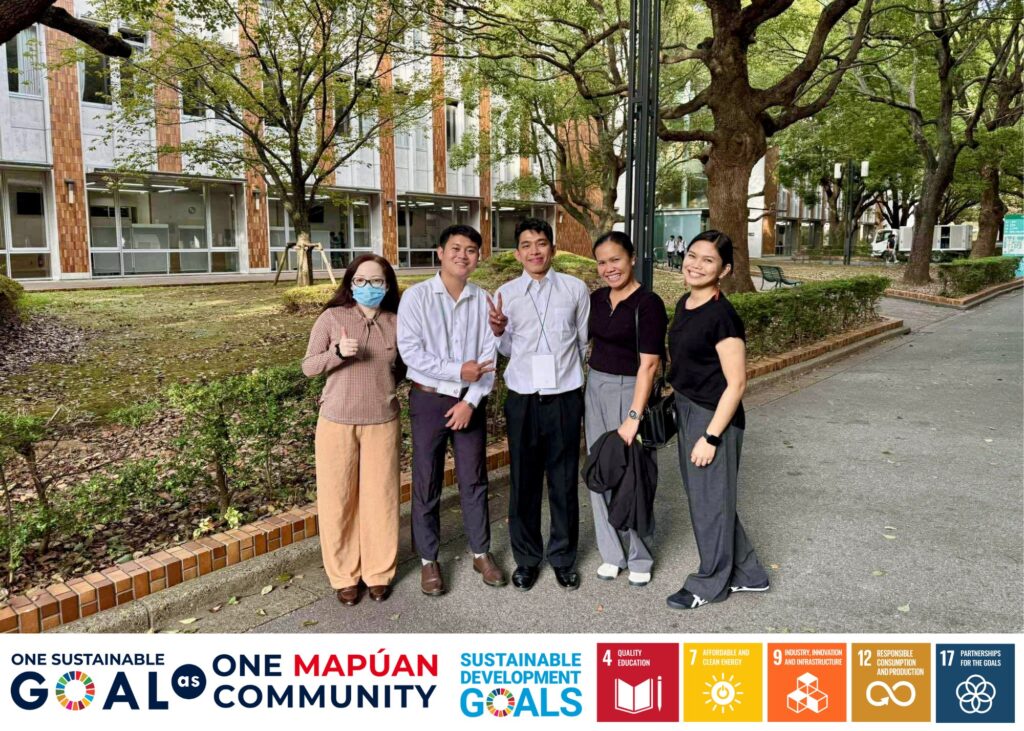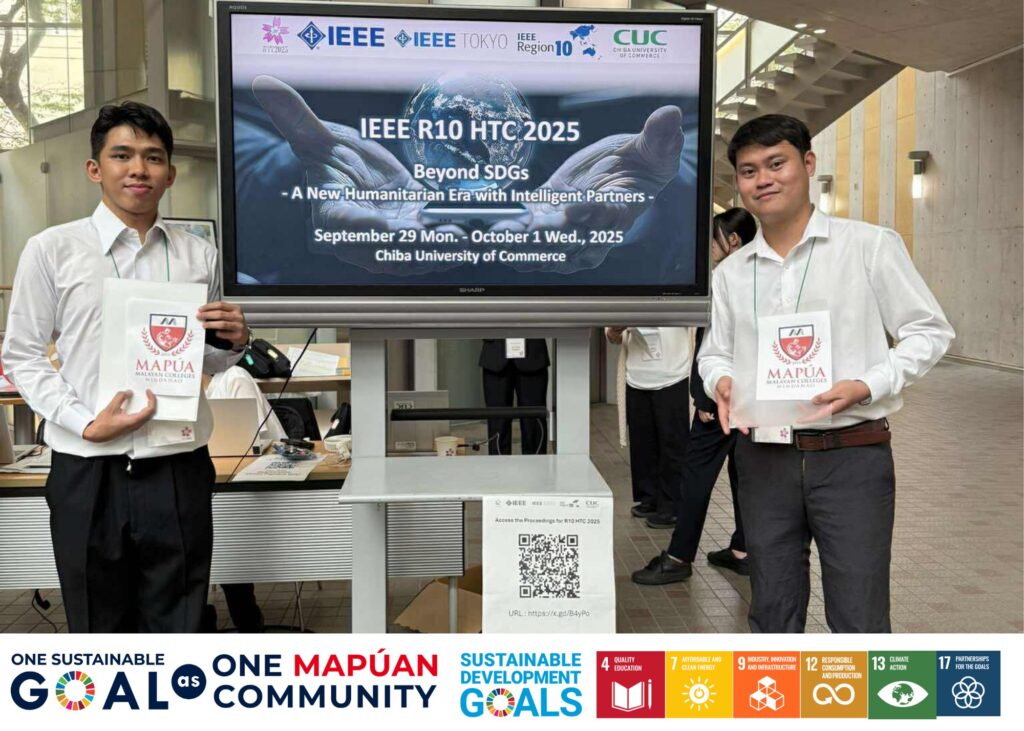Mr. Joseph D. Dinauto and Mr. John Noel R. Cabusas in Chiba University of Commerce, Japan.
Mapúa Malayan Colleges Mindanao (Mapúa MCM) continues to showcase its commitment to innovation and global collaboration as two of its student researchers represented the institution at the Institute of Electrical and Electronics Engineers (IEEE) R10 Humanitarian Technology Conference (HTC) 2025, held at the Chiba University of Commerce in Japan from September 29 to October 1, 2025.
The conference served as a platform for students, young professionals, women-engineers, and life members to engage with international researchers, professionals, and experts in the field of humanitarian technology. It fostered meaningful discussions and partnerships that promote sustainable technological solutions for global challenges.
Representing Mapúa MCM were 4th-year BS Chemical Engineering students, Mr. John Noel R. Cabusas and Mr. Joseph D. Dinauto. They presented their group research papers before an audience of international researchers, professionals, and experts in humanitarian technology. Mr. Cabusas presented “A Mixed-Review Method Analysis of Green Corrosion Inhibitors for Carbon Steel in an Acidic Environment,” while Mr. Dinauto presented “Meta-Analysis of Biomass-Derived Carbon Material from Agricultural Residue for Heavy Metal Adsorption.”

Engr. Lalaine Joan A. Limbago, John Noel R. Cabusas, Joseph D. Dinauto, Engr. Rica Jan C. Ondoy, and Ma’am Marie Gabrielle Ba-ang in Chiba University of Commerce, Japan.
Accompanied by faculty mentors Engr. Lalaine Joan A. Limbago, Engr. Rica Jan C. Ondoy, and Ma’am Marie Gabrielle Ba-ang, the students showcased Mapúa MCM’s commitment to promoting sustainability-driven solutions and fostering global academic collaboration. Their participation underscored the institution’s pursuit of excellence in research and innovation aligned with addressing real-world environmental challenges.
Organized by the Institute of Electrical and Electronics Engineers (IEEE)—the world’s largest professional organization dedicated to advancing technology for humanity—the conference brought together participants to exchange ideas and explore technological innovations contributing to sustainable development.
Through their active participation, the representatives of Mapúa Malayan Colleges Mindanao exemplified the institution’s commitment to the United Nations Sustainable Development Goals (SDGs)—specifically SDG 4 (Quality Education), SDG 7 (Affordable and Clean Energy), SDG 9 (Industry, Innovation, and Infrastructure), SDG 12 (Responsible Consumption and Production), SDG 13 (Climate Action), and SDG 17 (Partnerships for the Goals)—by promoting research collaboration and innovation that advance sustainable development for both people and the planet.


